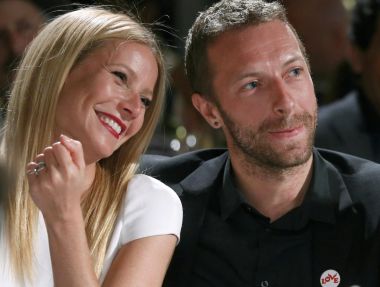Gwyneth Paltrow, Chris Martin 'Conscious uncoupling': A philosophy that's easier on the grown-ups than the kids

Ever since Gwyneth Paltrow announced on her blog that she and musician husband Chris Martin are separating after ten years of marriage, the world has just one question: what exactly is "conscious uncoupling"?
"We have been working hard for well over a year, some of it together, some of it separated, to see what might have been possible between us, and we have come to the conclusion that while we love each other very much we will remain separate," Paltrow writes.
"We hope that as we consciously uncouple and coparent, we will be able to continue in the same manner."
It's an interesting take on what us normal folk might call "divorce".
It seems to me that these delicately-chosen words, while great for the adults, may do little more than mask the inevitable pain that accompanies relationship breakdown - skimming over the surface in order to avoid delving into the real, unstructured, mess of grief.
Of course they have an absolute right to their privacy, and we are by no means entitled to knowing the intricate details of their relationship. Like any couple, Paltrow and Martin must be allowed to work out their lives with dignity in private.
But such extenuative language - suggesting that they are "closer than we have ever been" – does make me wonder whether divorce has been elevated to something it simply isn't – a sort of "as long as we do it without mauling each other in the process, it's ok".
In an article for Threads UK, Annie Carter puts it like this: "No matter how it is euphemistically defined, the stark sadness of divorce cannot be masked by redefining it as 'conscious uncoupling'.
"In an attempt to downplay the reality of a family severed by broken relationship, this less offensive phrase has been very carefully chosen. Ultimately, the children won't be concerned by semantics. They will face the reality for what it is: their parents no longer love each other enough to live together anymore; their family unit has been broken."
Whatever our own thoughts on divorce, it is undeniably a painful and hurtful thing and has repercussions far beyond the two people immediately involved. Family, whether that be biological, church or otherwise, is the ultimate expression of God's relational heart – and when it breaks down, something far deeper than just assets are also split.
In an essay entitled 'On Unconscious Coupling", Paltrow's spiritual advisors Dr Habib Sadeghi and Dr. Sherry Sami suggest that "a marriage coming apart is the cause of something else coming together". While I have no doubt that God can bring goodness out of any situation, is this a healthy way of looking at marriage? As something that can be cast aside in search of something better? And who is the something better for?
Such a philosophy feels a little adult-centred, coming at the expense of children who probably had no say in the matter and for whom no amount of tactful language is going to compensate for the pain of seeing the two people they love and rely on most in the world walk in two separate directions. If something else does indeed come together, it may not be clear to the children just where they fit in that picture.











